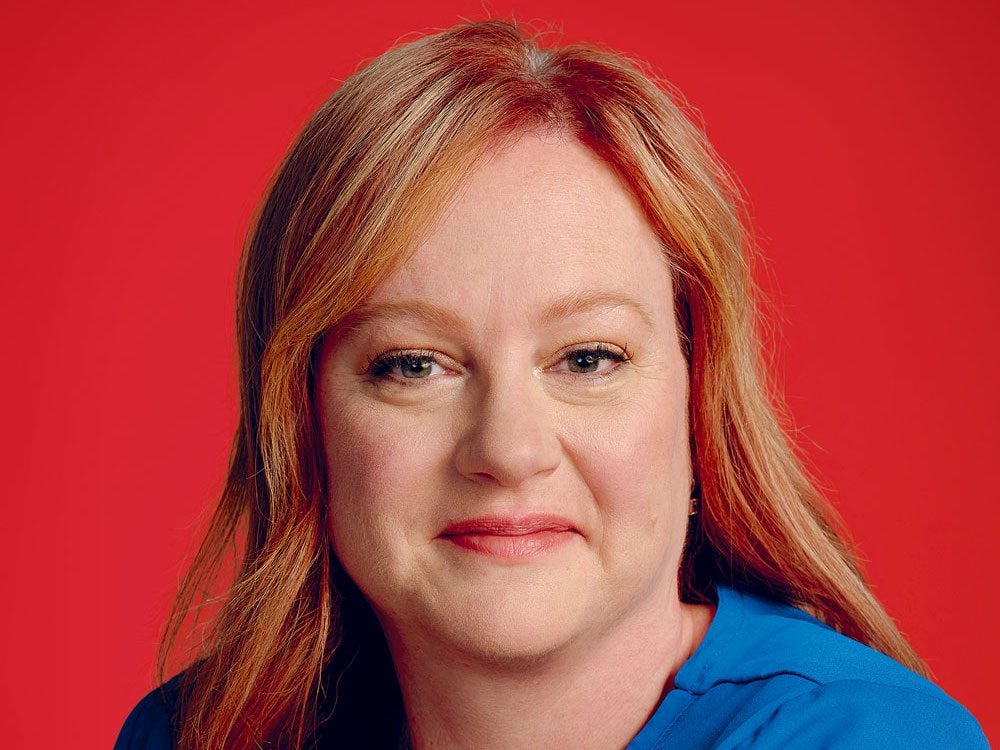
She helps care for COVID-19 patients
Cynthia Rennie-Faubert, 48, Cornwall, Ont.
The speed of the coronavirus outbreak in Wuhan worried Cynthia Rennie-Faubert. As an emergency room nurse in Cornwall, she’d seen her share of outbreaks, including SARS and H1N1, but nothing like this. She knew it was only a matter of time before this new virus arrived in her community.
A month later, it did. On February 21, the federal government sent 129 Canadians from the Diamond Princess, an infected cruise ship, for a 14-day quarantine at a Cornwall hotel and conference facility that’s often used in emergency situations. Rennie-Faubert, who works at Cornwall Community Hospital, would help treat any passengers who fell ill. Some were seniors—a population at higher risk of heart disease, high blood pressure, and diabetes, increasing the chance of medical complications.
The hospital staff jumped into action, increasing isolation measures and stocking storerooms with infectious disease supplies. Thankfully, all of the quarantined passengers soon passed with a clean bill of health. But the virus proved unavoidable when, in March, the region confirmed its first positive case of COVID-19.
Screening potential cases was complicated, not least because it’s possible for asymptomatic people to spread the virus. “We don’t have the luxury of getting it wrong,” Rennie-Faubert says. “We must assume anyone could have the virus.” On any given day, her ER sees a wide range of cases, from car crash victims to heart attack patients, and if a patient is unresponsive, for example, she can’t ask about their history. She can’t know if they’re infected.
As of mid-March, Ontario had tested more than 23,000 people for the virus, and front-line health-care workers remained at the greatest risk for exposure. In Toronto alone, some dozen nurses and doctors had tested positive for COVID-19. Tension was high. But Rennie-Faubert was confident her hospital could successfully manage the virus. After all, they’re a team. Everyone was taking turns working extra shifts, making sure nobody burned out. The trick, she says, is to stay calm. She reminds herself and others that in most ways it’s just another day at work: “We’re looking after sick patients in their time of need.”

They saved a life at the curling rink
Jessica Hoekstra, 29, and Roy Penner, 53, St. Albert, Alta.
Neil McKay was in the middle of his usual Tuesday curling game in St. Albert last December when he started to feel light-headed. The 70-year-old retired engineer is typically in good health, but as he stepped off the ice, he collapsed. Jessica Hoekstra was upstairs, working her first shift at the curling club bar, when she noticed him fall. A licensed practical nurse, she bolted downstairs and quickly recognized that McKay was in cardiac arrest. Hoekstra began administering CPR immediately. “The sooner you start, the more likely you are to have a positive outcome,” she says. “Every second counts.”
Firefighter Roy Penner, who was playing on the next sheet, rushed over to assist with compressions, while another patron ran for the building’s defibrillator. After McKay’s rescuers administered a shock, he regained consciousness and was taken to hospital, where he swiftly recovered.
Today, McKay remains friends with the people who saved him and makes sure to stop and chat whenever he runs into them at the club. McKay feels fortunate that so many knowledgeable people were on the scene. “They’d probably say, ‘I was just doing my job,’” McKay says, “But boy, did they ever do a good one.”
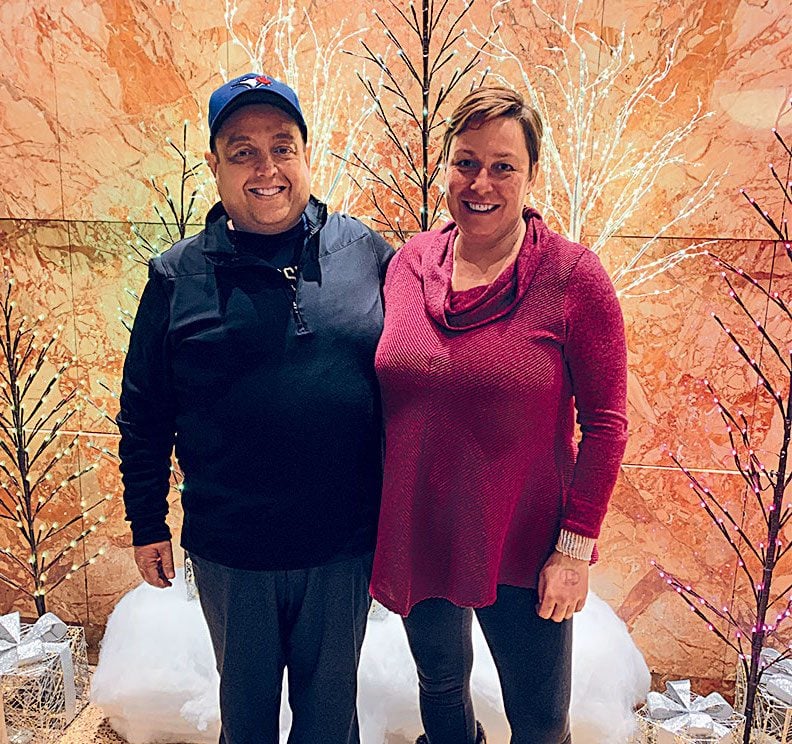
She donated a kidney to her financial adviser
Kate Kirkpatrick, 45, Shubenacadie, N.S.
When Scott Giles found himself in need of a new kidney, Kate Kirkpatrick, a customer at his bank, knew she wanted to give him hers.
Kirkpatrick and Giles had first met around 2005, after she’d moved to Shubenacadie from Scotland after marrying a Canadian. But by the time she walked through the doors of Giles’s financial adviser office, her marriage was dissolving, she had five-year-old twins in tow and she was at her wits’ end. The two simply connected, she recalls. In addition to helping Kirkpatrick get set up financially, Giles offered support and advice. “I had no family here, so I’d ask him everything,” she says. “If I wanted to take a vacation, I’d ask him where to go.” When her divorce was finalized, Kirkpatrick cried in Giles’s office; when her kids needed bank cards, they knew exactly where to go.
After Giles had to take a leave from work to tend to his health, and it became clear that he needed a kidney transplant to survive, she offered to get tested. In January 2018, they found out they were a match.
The donation process stretched out over two years, during which they both underwent a battery of tests. Today, Giles is off dialysis. Kirkpatrick didn’t start to process the magnitude of what she’d done until it was over. “I didn’t think it was any different from paying it forward at the Tim Hortons drive-through,” she says. “I try to live life to the fullest, and it was a privilege to help somebody do the same.”

She saved a stranger from a knife attack
Sara Picard, 17, Qualicum Beach, B.C.
Sara Picard is the kind of teen who likes to do the right thing. The Grade 12 Qualicum Beach student volunteers at the soup kitchen, organized a successful coat-donation drive and plans to study social work at Vancouver Island University. So when Picard spotted a man attempting to force a woman into a van in a downtown parking lot last November, she didn’t hesitate to help.
She instinctively shoved herself between them and pushed the man—the woman’s ex-husband—away. In response, he pulled out a hunting knife and waved it wildly at them. The man then grabbed the woman, brandishing the knife to force Picard away. That’s when Picard called 911.
While Picard was still on the phone, the man panicked and turned the knife on himself, plunging it into his chest. Picard, not letting her fear show, urged the woman to run for safety while she stayed on the scene. The paramedics who arrived minutes later weren’t able to revive the man.
In the weeks after the incident, Picard brought groceries to the woman’s home, and joined the woman and her three children for lunch. Picard remains unfazed. “If I want to be a social worker, I’m going to have to see things like that,” she says. “It was a blessing in disguise that I was there and able to help.”
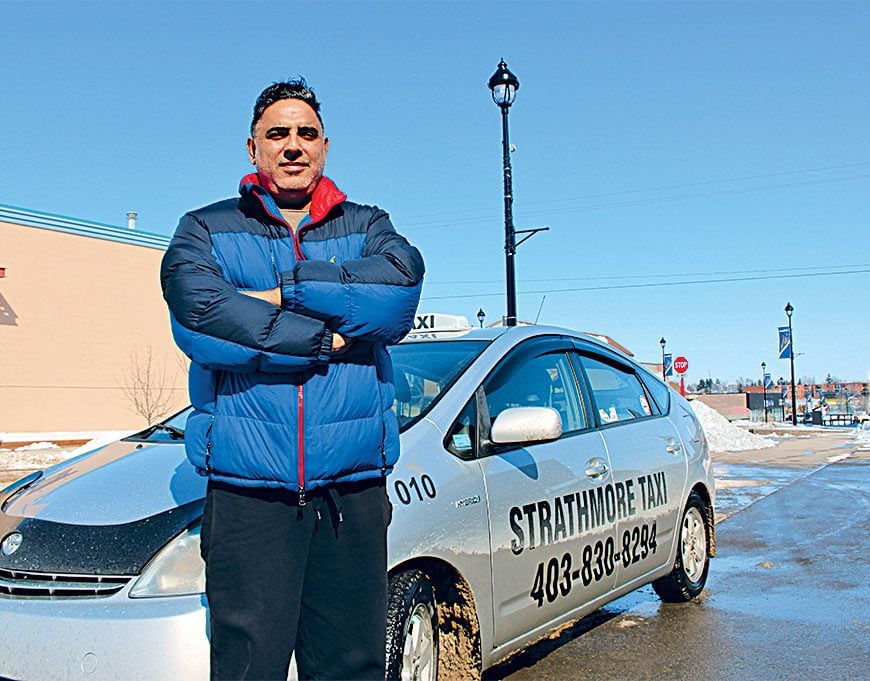
He kept seniors warm during a cold snap
Ajaypal Singh, 41, Strathmore, Alta.
When temperatures plunged to -35 C in the tiny town of Strathmore this past January, taxi operator Ajaypal Singh saw an opportunity to help his community. He figured there must be elderly people afraid or unable to leave their homes to buy necessities because of the extreme cold. Work was slow anyway, so he thought, Why not pick up their groceries for them? Singh and his crew of five drivers encouraged patrons to call in with their requests, like bread and milk, then delivered them to 25 grateful locals—free of charge, minus cost of the purchases. “One lady even hugged me after I brought her medicine she needed,” says Singh.
This isn’t the first time Singh has helped others out. Since last summer, he has also offered free round-trip rides for people headed to the Strathmore food bank. “The world is full of people doing nice things like me,” he says. “This is just how I play my part.”
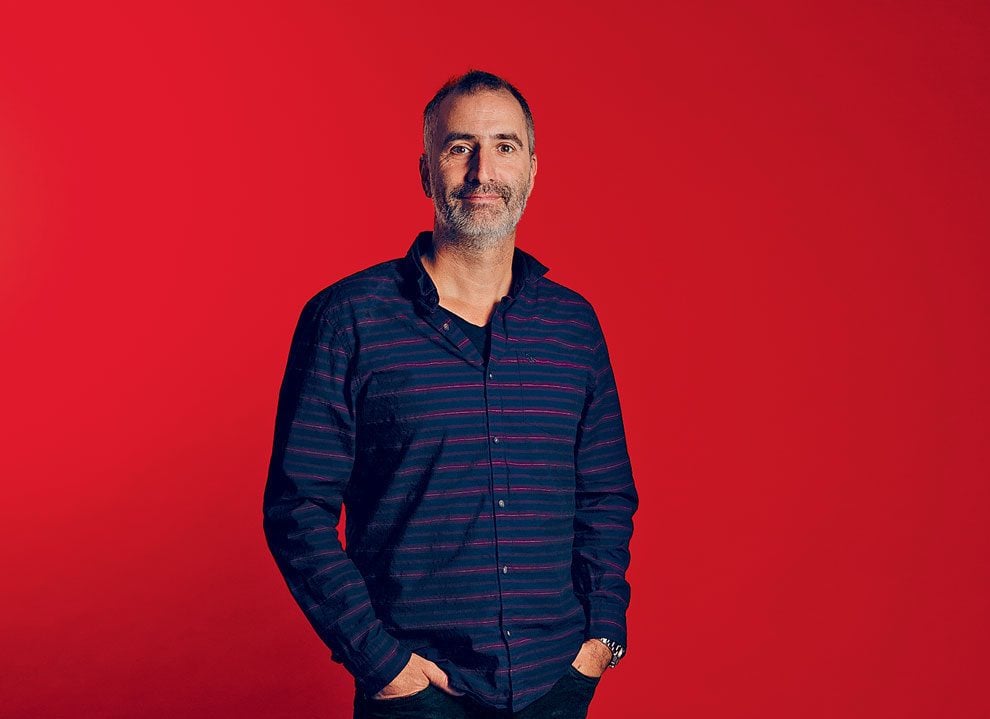
He stopped a speeding car from plowing into pedestrians
Erick Marciano, 49, Montreal
Last November, Montreal contractor Erick Marciano was on his way to get an Italian sub when he noticed the speeding Honda. Stopped at a bustling downtown intersection in his own SUV, he watched as the car zoomed through a red light, police close behind, sirens blaring. “There’s something you don’t see every day,” he thought.
As the speeding driver slowed in the swirling snow, police closed the gap. Marciano saw officers exit their cars, guns drawn—exactly as the Honda driver revved backwards and pulled a swift U-turn, accelerating toward Marciano and a busy crosswalk. Marciano immediately thought of recent terrorist attacks on pedestrians in other cities and made a split-second decision. “I didn’t want that to happen here,” he says. “I had to stop him.”
Skidding into the opposite lane, Marciano laid on his horn, warning pedestrians. Then he angled his SUV directly into the Honda’s path. As the other car raced toward his, Marciano pitched himself out the door, narrowly escaping the crash. Both vehicles screeched into the intersection, but his heroic manoeuvre allowed a dozen passersby to flee. The Honda driver was apprehended and, miraculously, there were no major injuries. “I did what I had to do,” Marciano says, and he would do it again—even if he never did get that sandwich.
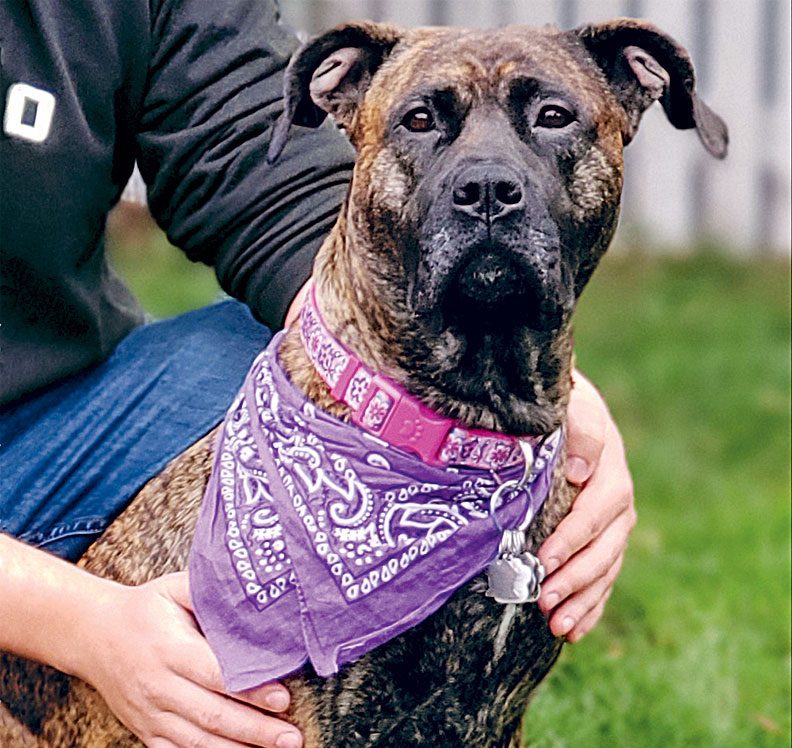
She rescued her lost best friend
Chili, 3, Abbotsford, B.C.
Mordy, a white labradoodle, was once afraid of every knock on the door, says Jared Palfrey, an IT consultant who lives with his wife, Angie, and their six kids in Abbotsford. If someone came over, Mordy would hide under the piano. The only creature he’s never been shy around is Chili, a slobbery Cane Corso who belongs to Palfrey’s brother. The two dogs were fast friends.
The Palfreys panicked last August when Mordy bolted on a road trip nearly three hours away from their home—and refused to answer desperate calls. Unwilling to give up on finding their dog, they camped out several times near the forest where Mordy ran away. They even paid $5,000 to a pet detective. Nothing worked. That is, until Chili became head of Operation Rescue Mordy.
Three weeks later, following reports of Mordy sightings, the Palfreys returned to the woods with Chili in tow. When unclipped from her leash, Chili barrelled into the forest. In seconds, she trotted back out with Mordy at her heels. “We hugged and hugged and hugged this brave pup,” Palfrey says of Chili. They also feted her with presents, including her favourite bones. As for Mordy: “He’s developed a courageous streak.”
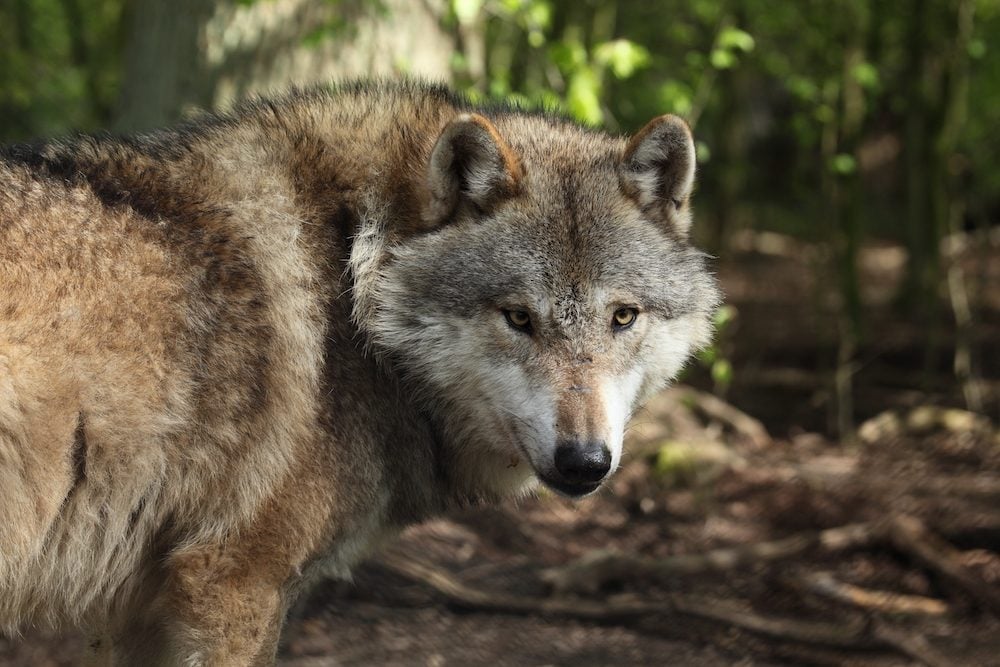
He defended a family of campers from a wolf
Russ Fee, 37, Calgary
Over 30 years of camping vacations, Russ Fee had never experienced or heard of a wolf attack. That changed last August while he was camping with his wife and two sons at Banff National Park. At around midnight, Fee woke to the sound of panicked voices calling for help. He knew there was another family with two sons, ages five and seven, at the next campsite over, and went to investigate.
As Fee approached, he caught sight of an animal’s rear legs protruding from a collapsing tent—legs too large to belong to a dog. Fee ran up and kicked the animal. Startled, it backed out of the tent. Suddenly, Fee was standing face-to-face with a wolf. “That was a terrifying moment,” he recalls. Matt Rispoli, the neighbouring dad, jumped out of the collapsed tent covered in blood. Moments earlier, the wolf had bitten through the tent, puncturing his arm and tearing the material. Both men shouted and threw rocks at the wolf to scare it away.
The wolf backed off long enough for the Rispolis to pile into the Fees’ van. Since there was no cell service, Fee drove the family to a nearby hotel, where staff called 911. Rispoli, who only needed stitches, was grateful for Fee coming to his family’s rescue. Park personnel euthanized the wolf later that night—the rare attack was likely because the wolf was near starvation.
The Fees still keep in touch with the Rispolis over Facebook and even exchanged Christmas gifts last year. “It easily could have been my family who got attacked,” says Fee. “We were all fortunate in the end.”
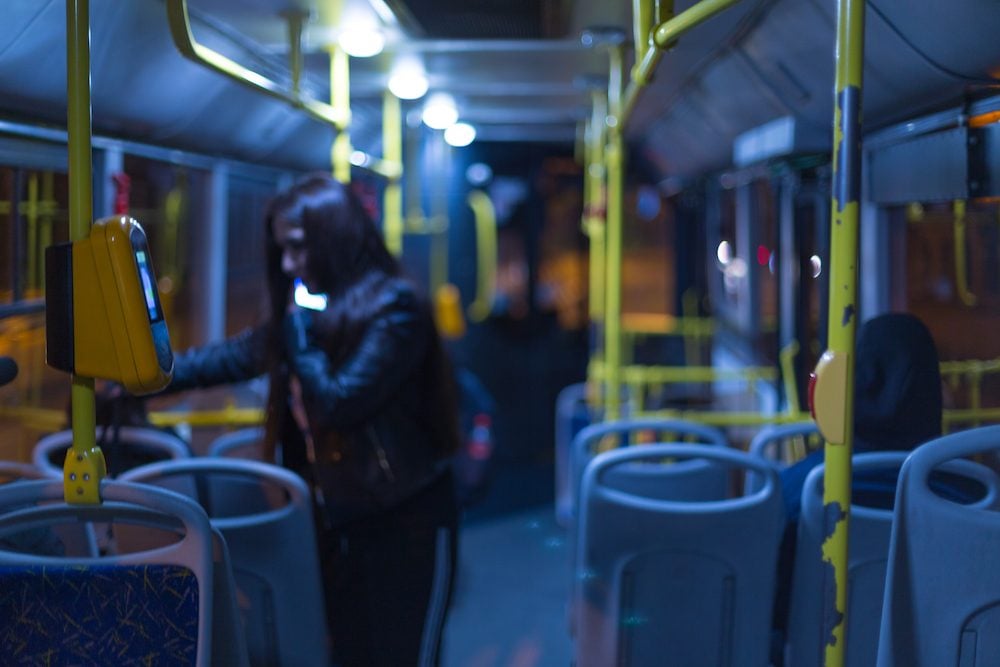
They helped rehabilitate their bus attacker
Jonny Meikle, 30, and Matthew Shorting, 29, Winnipeg
Best pals Jonny Meikle and Matthew Shorting were in a great mood when they boarded a Winnipeg city bus in November 2018. Meikle, a military veteran who served in Afghanistan, was nearing a year of sobriety; the friends had just celebrated with dinner at The Keg.
But within a few stops, two intoxicated men boarded the bus. One sat down across from Meikle and tried to get a rise out of him. Meikle refused to take the bait, but noticed the man had a knife. The antagonizer then began hurling racist threats at another man, who, in turn, got up to exit the bus. The antagonizer followed.
Concerned that he might use his knife, Meikle delivered a kick to the man’s solar plexus. A tussle ensued, during which Meikle and Shorting were able to wrestle him off the bus. Outside, Meikle sustained a stab wound to the leg. Police arrived minutes later and their attacker’s rough arrest shook both Meikle and Shorting. The man was Indigenous, and as Indigenous men themselves, the pair couldn’t ignore how this fit a pattern of police abuse against their community.
“Not long after this,” says Meikle, “I started thinking about what his story was.” Later, when his assailant appeared in court, Meikle petitioned for a restorative justice process—an approach that prioritizes reconciliation and healing. Although the man received jail time, the court agreed to use a restorative sentencing circle. Meikle later helped the man find housing.
“It doesn’t take something bad happening to be a hero,” says Meikle. “The hero is the person who helps someone when they need it.”
These stories of Canadians going above and beyond with their acts of kindness will inspire you to do the same.